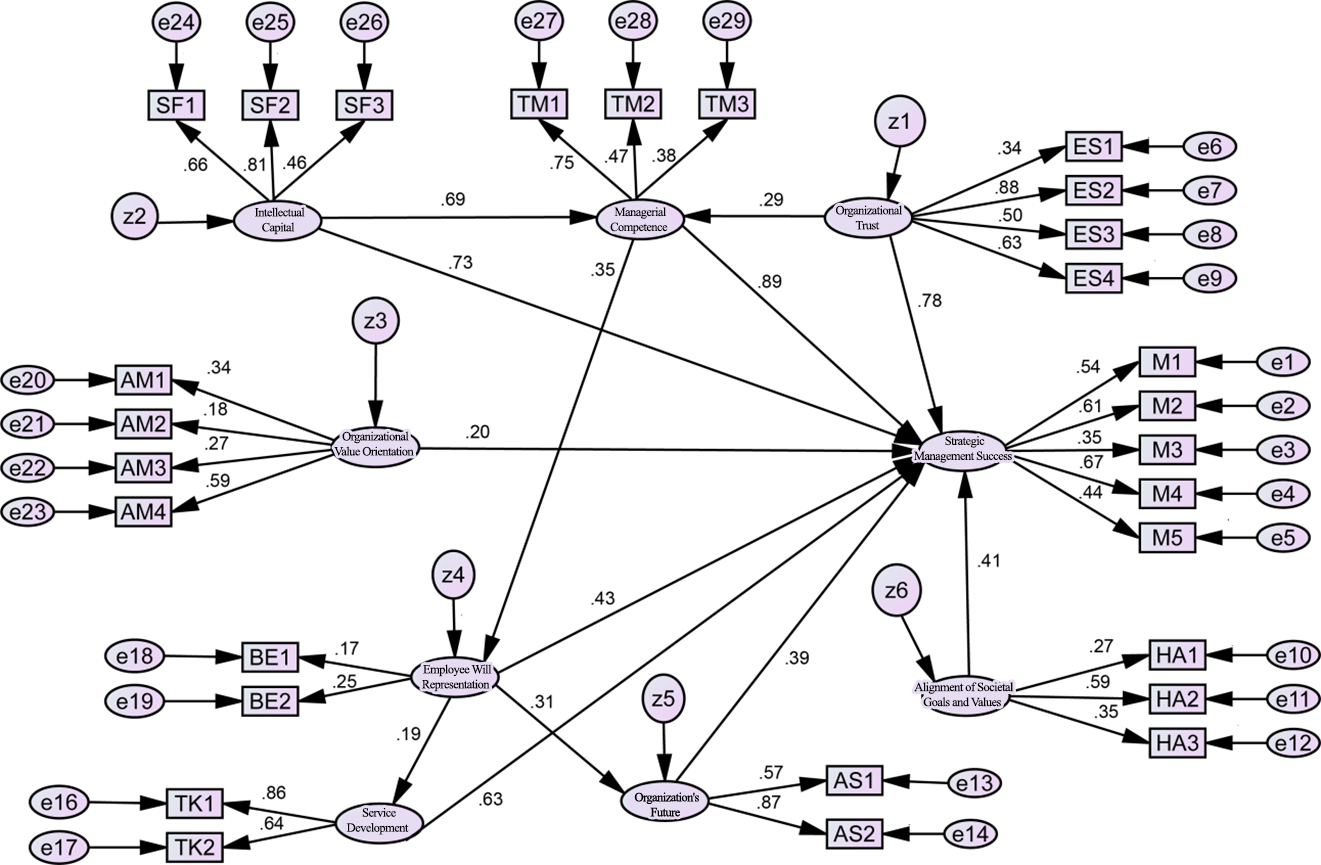Strategic Management with an Organizational Trust and Intellectual Capital Approach in Technical and Vocational University
Keywords:
Strategic management, organizational trust, management success, intellectual capitalAbstract
This research aims to develop a strategic management model with an organizational trust and intellectual capital approach at the Technical and Vocational University of Chaharmahal and Bakhtiari Province in 2023. The research methodology, given its objective, is of a mixed-method nature, conducted using a sequential exploratory strategy. Initially, the qualitative phase, aimed at providing a localized model for strategic management success, was conducted using grounded theory. Subsequently, the extracted local model was tested and validated using the quantitative phase. The qualitative sampling method employed in this study was purposive sampling. Data were analyzed after conducting 20 in-depth interviews with university professors and management experts at Payame Noor University, based on the three-phase coding process. In the open coding phase, more than 308 concepts and 193 meaningful propositions were extracted. In the subsequent phase, 23 subcategories were derived from these meaningful propositions, and during axial coding, through a more detailed examination and connection between the concepts, 8 categories emerged. These categories included: intellectual capital, organizational trust, organizational value orientation, representation of employee will, organizational future, alignment of societal goals and values, managerial competence, and service development. Through further abstraction during selective coding, a core category emerged as follows: "The success of strategic management at the Technical and Vocational University is based on intellectual capital and organizational trust, rooted in value orientation and the representation of employee will, with high managerial competence, in which the alignment of societal goals and values shapes the future of the organization." This core category encompasses all other categories. After developing the localized model, a researcher-made questionnaire was designed and implemented to test and validate the model by indexing the axial categories. The quantitative results from structural equation modeling demonstrated that, in the model, the strongest effect pertained to the relationship between managerial competence and strategic management success, with a coefficient of (0.89). Following this, the effects of the variables of organizational trust and intellectual capital, with coefficients of (0.78) and (0.73), respectively, ranked second and third in terms of impact. Finally, the variables of service development, representation of employee will, alignment of societal goals and values, attention to the organization's future, and organizational value orientation, each with specific coefficients, had a direct and significant impact on the level of strategic management success in the management of the Technical and Vocational University of Chaharmahal and Bakhtiari.












